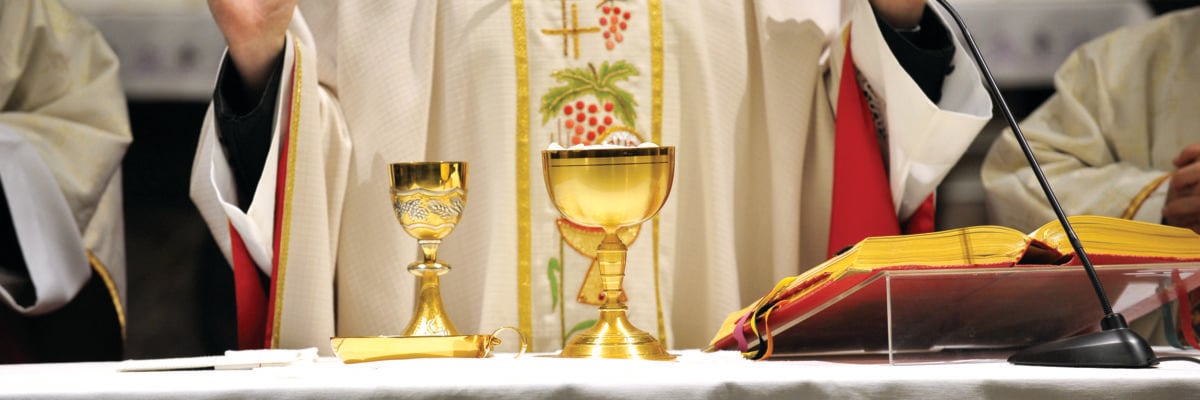
Question:
Answer:
No, it is not licit for a priest to change the words of consecration.
The priest must remember that he is the servant of the sacred Liturgy and that he himself is not permitted, on his own initiative, to add, to remove, or to change anything in the celebration of Mass (GIRM, 24).
Only those Eucharistic Prayers are to be used which are found in the Roman Missal or are legitimately approved by the Apostolic See, and according to the manner and the terms set forth by it. “It is not to be tolerated that some priests take upon themselves the right to compose their own Eucharistic Prayers” or to change the same texts approved by the Church, or to introduce others composed by private individuals (Redemptionis Sacramentum, 51).
While it is illicit to change the words of consecration, the change you describe does not seem to change the meaning of the words of consecration, and therefore it would still be a valid Eucharist.
Defects on the part of the form may arise if anything is missing from the complete wording required for the act of consecrating. . . . If the priest were to shorten or change the form of the consecration of the Body and the Blood, so that in the change of wording the words did not mean the same thing, he would not be achieving a valid sacrament. If, on the other hand, he were to add or take away anything which did not change the meaning, the sacrament would be valid, but he would be committing a grave sin (Pope St. Pius V, De Defectibus, 20).



